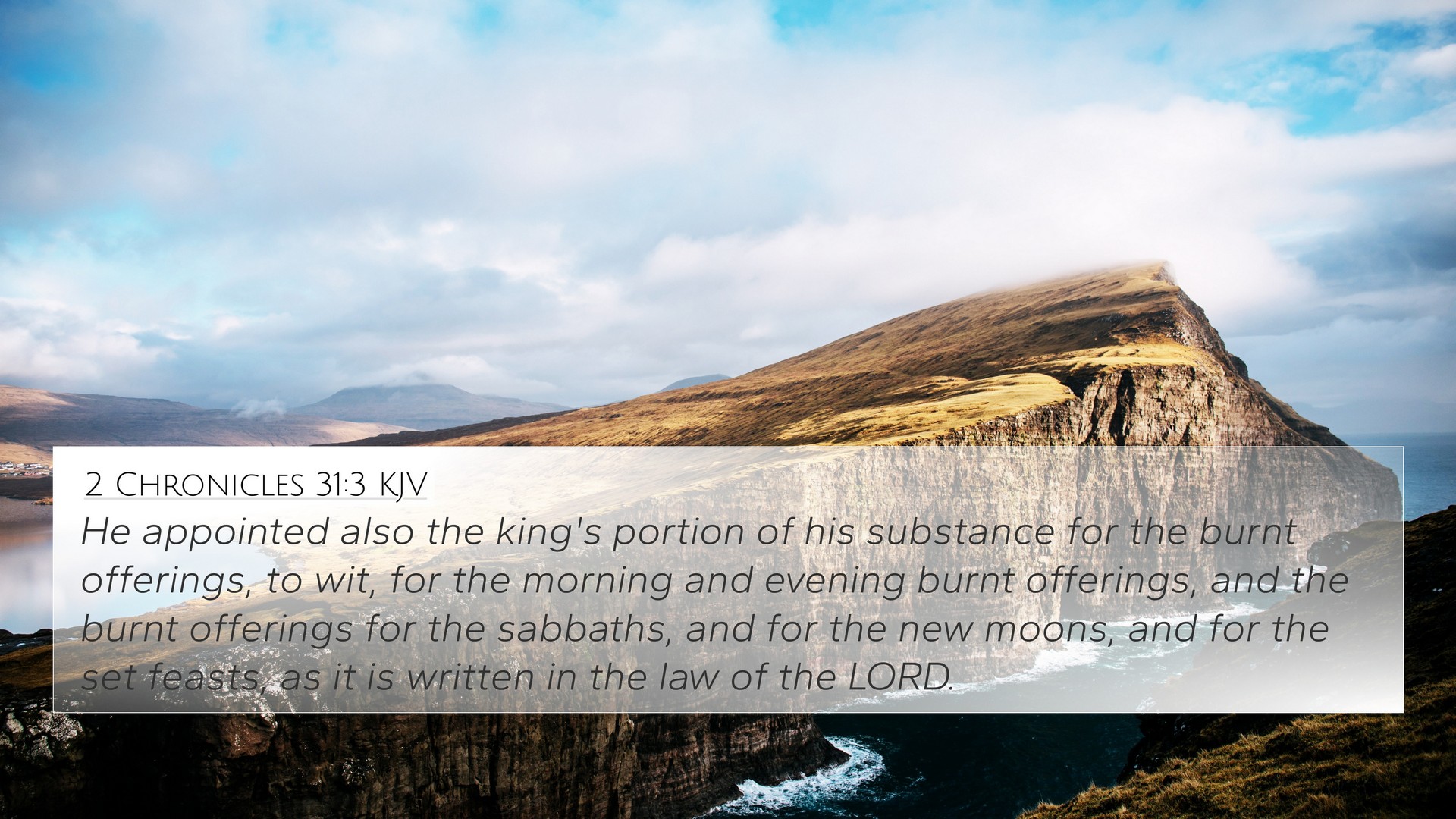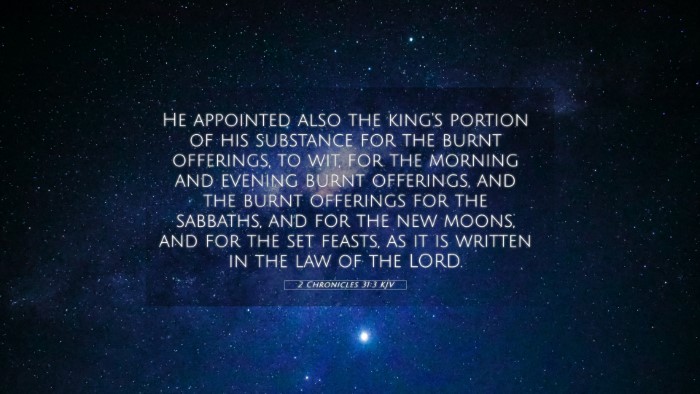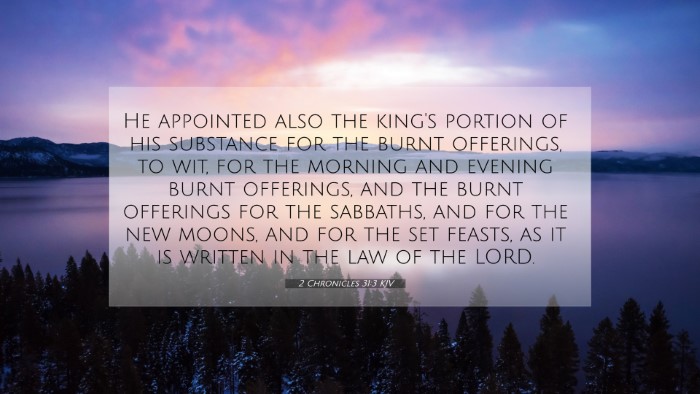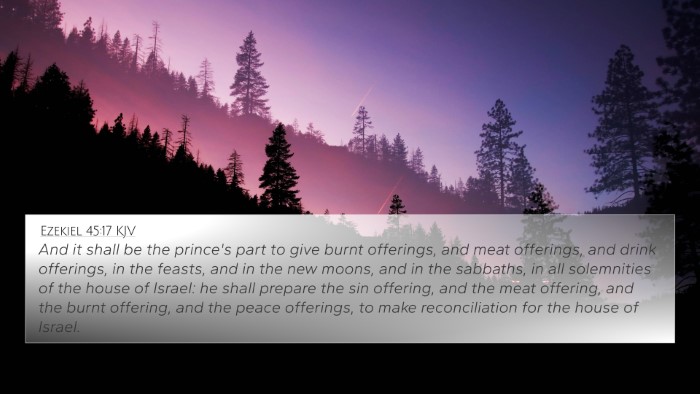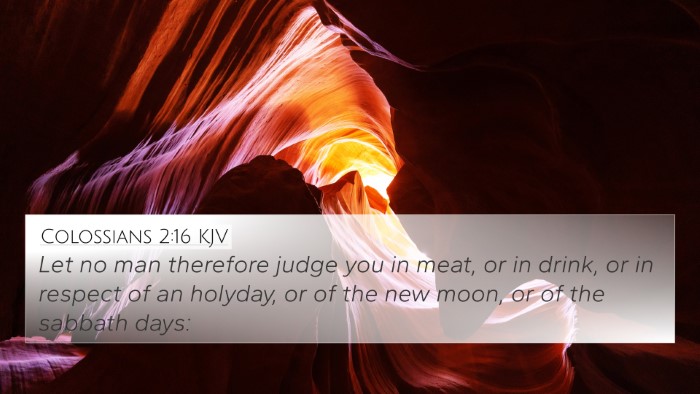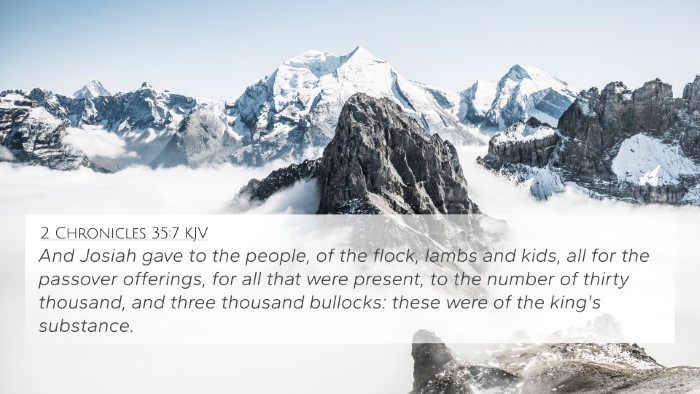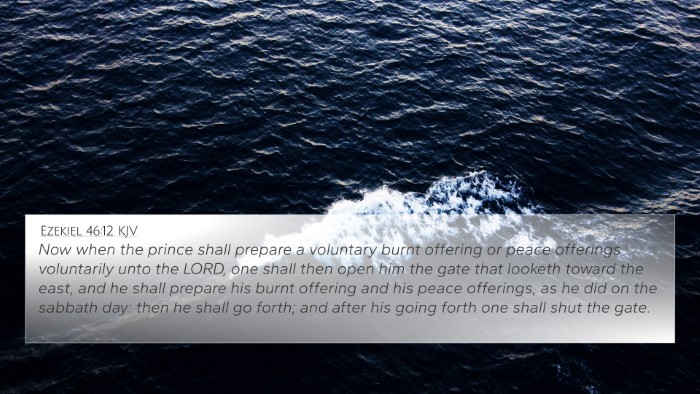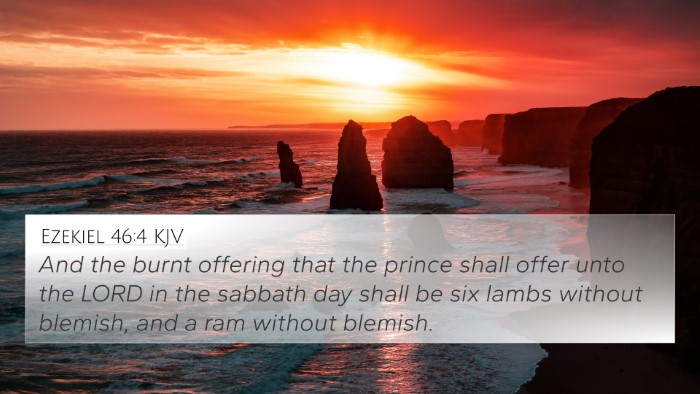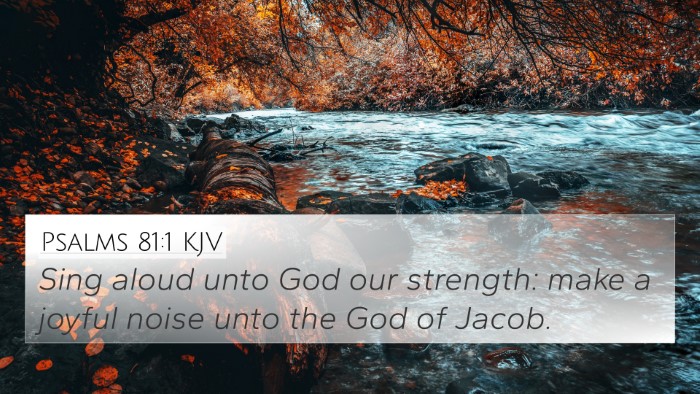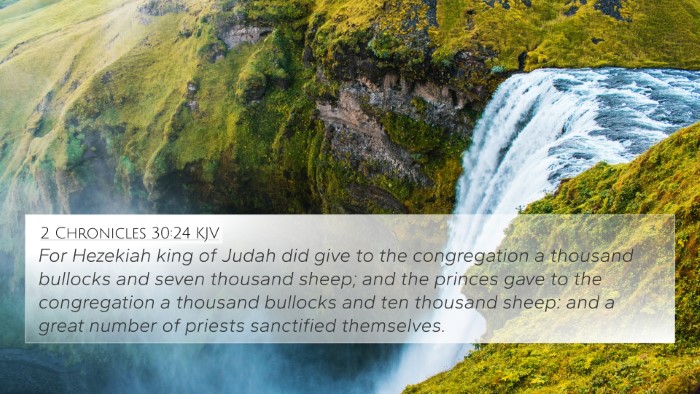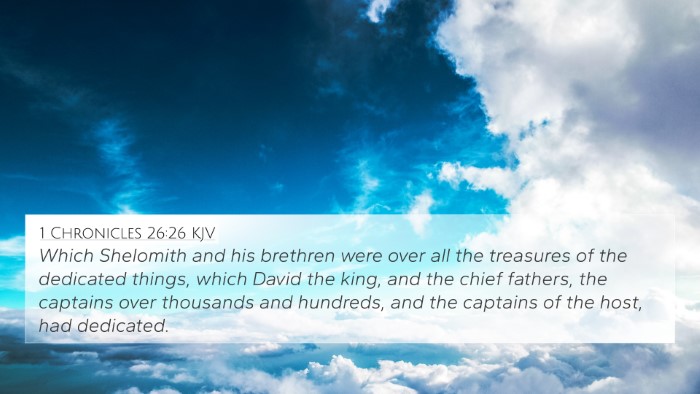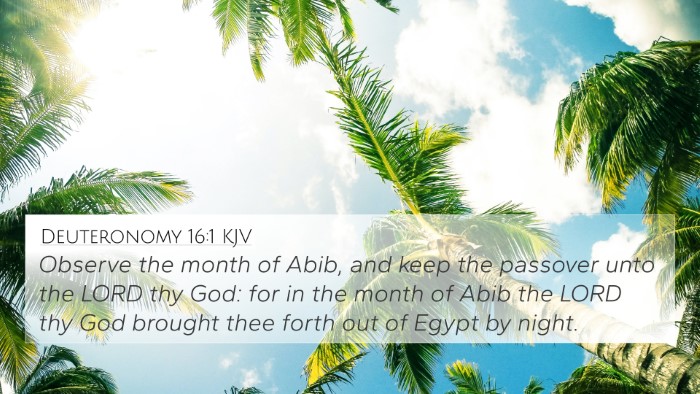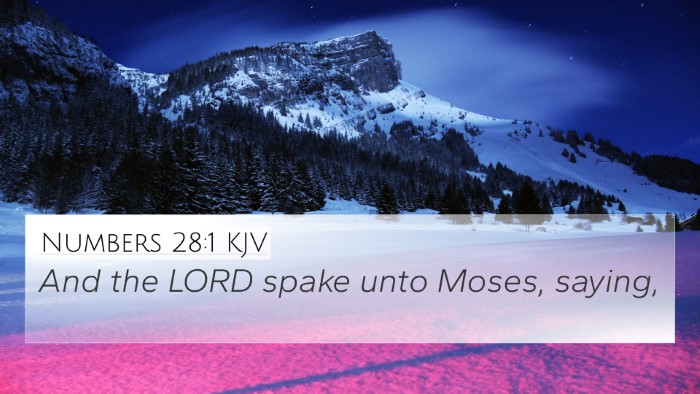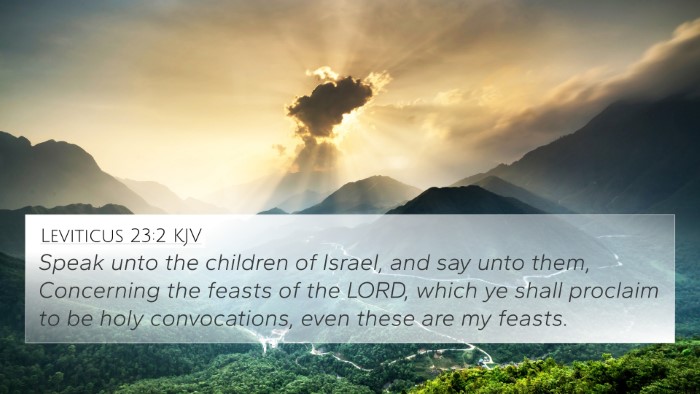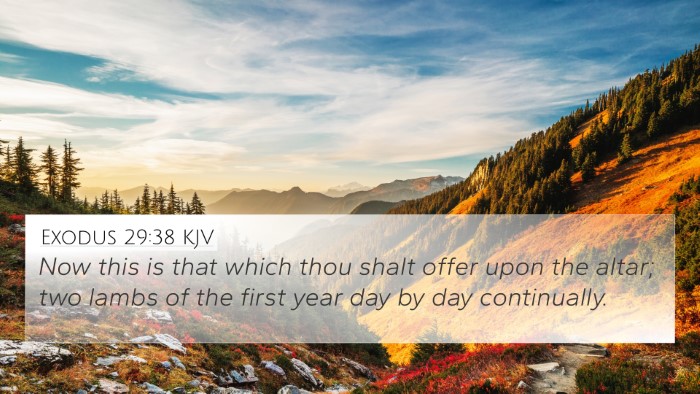Understanding 2 Chronicles 31:3
Verse: "He appointed also the king's portion of his substance for the burnt offerings, to wit, for the morning and evening burnt offerings, and the burnt offerings for the sabbaths, and for the new moons, and for the set feasts, as it is written in the law of the LORD."
Verse Meaning and Explanation
The verse of 2 Chronicles 31:3 highlights the dedication of King Hezekiah in providing for the religious needs of the nation. This verse emphasizes the importance of burnt offerings, which were central to worship in the Old Testament.
Contextual Background
Hezekiah was known for his religious reforms and efforts to restore proper worship in Judah after the previous kings had led the people away from following the commandments of God. This act of providing for the offerings demonstrates his commitment to the law of the Lord and the restoration of the worship practices as ordained in the Jewish law.
Commentary Insights
- Matthew Henry: Henry states that Hezekiah exhibited a great zeal for the service of God. By allocating the king's portion for burnt offerings, he set an example for his people. He emphasized that worship should be prioritized in the life of the nation, reflecting a heart aligned with God’s desires.
- Albert Barnes: Barnes notes that the king’s portion consists of sustaining the practices that were vital for the worship and relationship with God. By specifying morning and evening offerings, he pointed out the daily commitment to worship, implying that God's presence is sought continually.
- Adam Clarke: Clarke comments on the detalization of the offerings Hezekiah provided for. He connects the burnt offerings for Sabbaths and new moons with the underlying principle of regular worship, highlighting the recurring need for atonement and dedication to God.
Spiritual Significance
This verse stands as a poignant reminder of the role of leadership in spiritual matters. Hezekiah's actions demonstrate that those in authority must take seriously their responsibility to promote and provide for worship in the community.
Cross-References to 2 Chronicles 31:3
Below are several cross-references that establish thematic connections and parallels within Biblical texts:
- Exodus 29:38-42: This passage describes the daily burnt offerings, underscoring the continuity of worship practices prescribed in the Law.
- Leviticus 23:37-38: Discusses the setting apart of feasts, reinforcing the significance of observance of sacred times within the faith community.
- 2 Kings 23:21-23: Further details about King Josiah's reforms indicate a historical link in the revival of worship practices across different reigns.
- Nehemiah 10:32-33: Illustrates the importance of Temple sacrifices and shows the continuity of worship after the exile.
- Psalms 50:5: A call to gather and present offerings as part of worship, echoing the idea of communal engagement in honoring God.
- Romans 12:1: While from the New Testament, it presents the concept of offering oneself as a living sacrifice, providing theological depth to the practice of dedication.
- Luke 2:22-24: Reflects the practices concerning offerings in the New Testament, illustrating historical continuity from the Old Testament.
Thematic Connections
The act of burnt offerings is a recurrent theme throughout the Bible, linking various forms of worship and the acknowledgment of God's authority. The importance of structured worship as depicted in this verse not only sheds light on Old Testament practices but also informs New Testament concepts of sacrifice and dedication.
Conclusion
This comprehensive approach to understanding 2 Chronicles 31:3 highlights our need for connecting biblical texts through the lens of worship and devotion to God. Hezekiah's example serves as an encouragement for modern believers to prioritize their relationship with God through consistent worship and sacrifice.
Related Study Tools
For those looking to deepen their studies in relation to 2 Chronicles 31:3, the following resources could be beneficial:
- Utilize a Bible concordance for finding related passages.
- Bible cross-reference guides can assist in identifying scriptural parallels.
- Engage in cross-reference Bible study methods for a more immersive exploration of themes and ideas.
Final Thoughts
As we delve into biblical passages, recognizing the connective threads between scriptures enriches our understanding. The act of cross-referencing not only enhances our study but also encourages a deeper appreciation of the continuity of God's message throughout the Bible.
